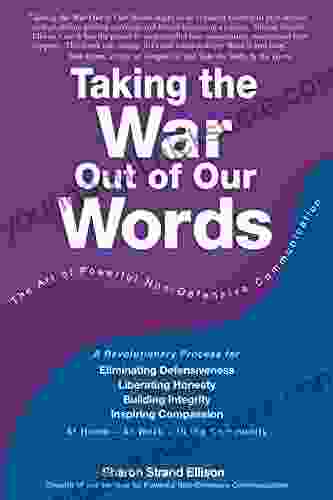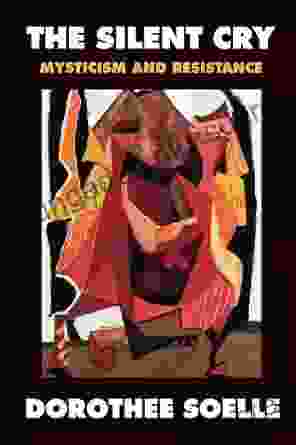Taking the War Out of Our Words: A Call for Conscious Communication in a Polarized World

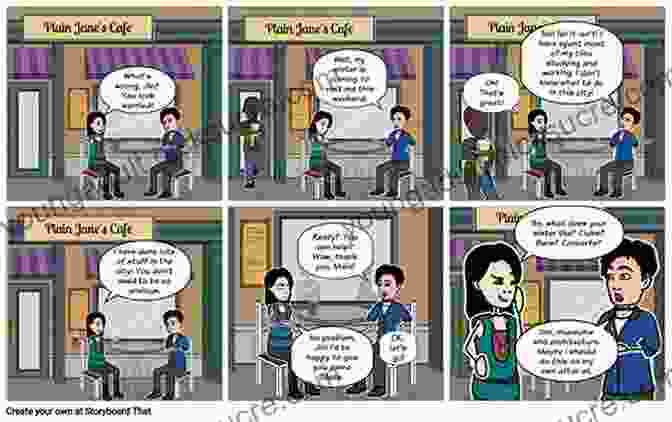
In an era marked by political division and social unrest, our words have become powerful weapons, fueling conflict and exacerbating societal divides. The language we use shapes our thoughts, influences our perceptions, and impacts how we interact with others. It is time to take a conscious approach to our communication and "take the war out of our words."
4.7 out of 5
| Language | : | English |
| File size | : | 790 KB |
| Text-to-Speech | : | Enabled |
| Screen Reader | : | Supported |
| Enhanced typesetting | : | Enabled |
| Word Wise | : | Enabled |
| Print length | : | 379 pages |
The Linguistic Roots of Division
War-like language, characterized by terms such as "battle," "fight," and "enemy," pervades our political discourse, media narratives, and everyday conversations. This militaristic rhetoric creates an adversarial mindset, framing disagreements as wars to be won or lost, rather than opportunities for dialogue and understanding.
When we use language that dehumanizes or otherizes opposing viewpoints, we create a gulf between ourselves and others, reinforcing stereotypes and perpetuating bias. Phrases like "the liberals are out to destroy our country" or "the conservatives are heartless and selfish" serve only to escalate tensions and hinder meaningful discussion.
The Impact of War-Like Language
The consequences of war-like language extend far beyond heated debates. It contributes to a climate of fear and distrust, where individuals feel under attack and resort to defensive or aggressive communication. It undermines the possibility of compromise and collaboration, as people become entrenched in their positions and unwilling to consider alternative perspectives.
Moreover, this language can have a corrosive effect on our emotional well-being. When we constantly encounter war-like rhetoric, it can lead to anxiety, stress, and a sense of hopelessness. It can also desensitize us to the horrors of actual war, making it easier to disregard the suffering of others.
A Call for Conscious Communication
To foster a more peaceful and inclusive society, we must actively work to remove war-like language from our communication. This requires a conscious effort to choose words that are inclusive, respectful, and non-inflammatory. It means refraining from using labels or generalizations that perpetuate stereotypes and contribute to division.
Instead, we should adopt language that emphasizes shared values, commonalities, and the desire for a better future. By focusing on the humanity of all individuals, regardless of their political affiliation or personal beliefs, we can create a dialogue that is characterized by empathy, understanding, and a genuine desire for progress.
Examples of Conscious Communication
Conscious communication is not about being politically correct or avoiding difficult conversations. It is about choosing language that promotes civility, respect, and the possibility of finding common ground. Here are some examples of conscious communication:
* "I understand that we have different perspectives on this issue, but I believe we both want what is best for our country." * "I appreciate your willingness to engage in a respectful dialogue, even though we may not agree on everything." * "Let's work together to find solutions that benefit everyone in our community, regardless of their background or beliefs."
The Role of Media and Education
The media and education play a crucial role in shaping our language and understanding of the world. It is essential for media outlets to adopt responsible reporting practices, avoiding sensationalism and war-like rhetoric that inflames tensions. News organizations should strive to present objective information and provide diverse perspectives to foster informed and balanced discussions.
Educational institutions have an equally important responsibility to promote conscious communication. From early childhood onward, students should be taught the importance of empathy, respectful discourse, and the power of language. By integrating these principles into their curriculum, schools can lay the foundation for a future of more constructive and compassionate communication.
Taking the war out of our words is not just a matter of semantics; it is a fundamental shift in the way we think about ourselves and our relationships with others. By adopting conscious communication practices, we can create a more inclusive, respectful, and peaceful society.
Let us embrace the words of Martin Luther King, Jr.: "We must learn to live together as brothers or perish together as fools." By choosing language that unites rather than divides, we can bridge the gaps that separate us and build a future where dialogue, understanding, and collaboration prevail.
4.7 out of 5
| Language | : | English |
| File size | : | 790 KB |
| Text-to-Speech | : | Enabled |
| Screen Reader | : | Supported |
| Enhanced typesetting | : | Enabled |
| Word Wise | : | Enabled |
| Print length | : | 379 pages |
Do you want to contribute by writing guest posts on this blog?
Please contact us and send us a resume of previous articles that you have written.
 Fiction
Fiction Non Fiction
Non Fiction Romance
Romance Mystery
Mystery Thriller
Thriller SciFi
SciFi Fantasy
Fantasy Horror
Horror Biography
Biography Selfhelp
Selfhelp Business
Business History
History Classics
Classics Poetry
Poetry Childrens
Childrens Young Adult
Young Adult Educational
Educational Cooking
Cooking Travel
Travel Lifestyle
Lifestyle Spirituality
Spirituality Health
Health Fitness
Fitness Technology
Technology Science
Science Arts
Arts Crafts
Crafts DIY
DIY Gardening
Gardening Petcare
Petcare Donald N Yates
Donald N Yates Angel Millar
Angel Millar Miles Olson
Miles Olson Cynthia Nims
Cynthia Nims Harry Fairhead
Harry Fairhead John Geiger
John Geiger Angela Eckhoff
Angela Eckhoff Jorge Ramos Mizael
Jorge Ramos Mizael Gregory J Davenport
Gregory J Davenport Christian Wiggins
Christian Wiggins Rob Willson
Rob Willson Michele Borba
Michele Borba Christopher Nyerges
Christopher Nyerges Andy Jurinko
Andy Jurinko Dawn Griffiths
Dawn Griffiths Scott Stillman
Scott Stillman Robin Yocum
Robin Yocum Third Edition Kindle Edition
Third Edition Kindle Edition Lindsay Ford
Lindsay Ford Ron Jeffries
Ron Jeffries Robert Lindsay
Robert Lindsay Guy Evans
Guy Evans Forrest Maready
Forrest Maready Bill Schneider
Bill Schneider Dr Eva Beaulieu
Dr Eva Beaulieu Mitch Horowitz
Mitch Horowitz Christian Heath
Christian Heath Tom Dymond
Tom Dymond Kelly Corrigan
Kelly Corrigan Eric Schmitz
Eric Schmitz Cate Tiernan
Cate Tiernan Catherine Mccord
Catherine Mccord Tanya Lee Stone
Tanya Lee Stone Ellen Frank
Ellen Frank Barry Pickthall
Barry Pickthall Patrick Ejeke
Patrick Ejeke Joy Williams
Joy Williams Daddilife Books
Daddilife Books Petros Efthymiou
Petros Efthymiou Frederick Aardema
Frederick Aardema Rodney Paul
Rodney Paul Matthew D Dewar
Matthew D Dewar Mirabai Starr
Mirabai Starr John Sonmez
John Sonmez Kim Foley Mackinnon
Kim Foley Mackinnon Jim Prime
Jim Prime Lisa Marie Mercer
Lisa Marie Mercer Anna Rashbrook
Anna Rashbrook Avinash Navlani
Avinash Navlani Rafael Gordillo Naranjo
Rafael Gordillo Naranjo Mercedes Pollmeier
Mercedes Pollmeier Nikki Ace
Nikki Ace Neveen Musa
Neveen Musa Mark W Steege
Mark W Steege Sam Fury
Sam Fury Viviana Altuve
Viviana Altuve Michael Anthony
Michael Anthony Greg Prato
Greg Prato G K Derosa
G K Derosa Rashaun Johnson
Rashaun Johnson Tim Larkin
Tim Larkin Oliver Burkeman
Oliver Burkeman Tania N Shah
Tania N Shah Nicholas Epley
Nicholas Epley Stephen Lynch
Stephen Lynch Jessica Nordell
Jessica Nordell Howell Raines
Howell Raines Scott Alan Johnston
Scott Alan Johnston Peter Gibson
Peter Gibson Arlin Smith
Arlin Smith Kristen S Kurland
Kristen S Kurland Shenila Khoja Moolji
Shenila Khoja Moolji Elizabeth Hunter
Elizabeth Hunter Stefan Hunziker
Stefan Hunziker L S Boos
L S Boos Stefanie K Johnson
Stefanie K Johnson Harold S Koplewicz
Harold S Koplewicz Gillian Price
Gillian Price Schoolhouse Heaven
Schoolhouse Heaven Rebecca Eanes
Rebecca Eanes Massimo Florio
Massimo Florio Shalabh Aggarwal
Shalabh Aggarwal Janet Menzies
Janet Menzies Caryl Say
Caryl Say Mark Rosenman
Mark Rosenman Dwight E Neuenschwander
Dwight E Neuenschwander Jeff Mach
Jeff Mach Bob Gordon
Bob Gordon Joe Berardi
Joe Berardi John B Nici
John B Nici Wendy Rosenoff
Wendy Rosenoff Michael V Uschan
Michael V Uschan Angelo Tropea
Angelo Tropea Rufus Estes
Rufus Estes Florian Freistetter
Florian Freistetter Sharon Strand Ellison
Sharon Strand Ellison Beth A Leonard
Beth A Leonard Kim West
Kim West Liv Ryan
Liv Ryan Mtg Editorial Board
Mtg Editorial Board D M Davis
D M Davis Julia Reed
Julia Reed Richard A Muller
Richard A Muller Tim Macwelch
Tim Macwelch Andy Schell
Andy Schell Andy Peloquin
Andy Peloquin Angela C Wu
Angela C Wu Ben Ehrenreich
Ben Ehrenreich Bradley Charbonneau
Bradley Charbonneau Wynne Foster
Wynne Foster Christina Reese
Christina Reese Paul Cobley
Paul Cobley Marilyn Burgos
Marilyn Burgos Joan Jacobs Brumberg
Joan Jacobs Brumberg Danil Zburivsky
Danil Zburivsky Martin Volken
Martin Volken Andy Crowe
Andy Crowe Angela Smith
Angela Smith Robert Zubek
Robert Zubek Jonah Lehrer
Jonah Lehrer Mark Wells
Mark Wells Stephen Jungmann
Stephen Jungmann Steve Hindman
Steve Hindman Barak Ariel
Barak Ariel Richard G Brown
Richard G Brown Andy Dowsett
Andy Dowsett Kevin Hunter
Kevin Hunter Mandee Heller Adler
Mandee Heller Adler Latonya J Trotter
Latonya J Trotter Angela Leslee
Angela Leslee Ray Walker
Ray Walker Jenny Smith
Jenny Smith Gerard Siggins
Gerard Siggins Jon Ronson
Jon Ronson Stephen Grossberg
Stephen Grossberg Belinda Norton
Belinda Norton Dave Gray
Dave Gray Sandy Tolan
Sandy Tolan Tom Allen
Tom Allen Andrea Lankford
Andrea Lankford Nathaniel Rich
Nathaniel Rich Lois A Ritter
Lois A Ritter Derek M Steinbacher
Derek M Steinbacher David Herres
David Herres Chanel Craft Tanner
Chanel Craft Tanner Cheryl Alkon
Cheryl Alkon Kyle Graves
Kyle Graves Mark Verstegen
Mark Verstegen Madeleine Roux
Madeleine Roux Alberta Hawse
Alberta Hawse Angela Thayer
Angela Thayer James Quinn
James Quinn Dan Ariely
Dan Ariely Charney Herst
Charney Herst Neil Hawkesford
Neil Hawkesford David Kinney
David Kinney Angelo Chiari
Angelo Chiari Jules Brown
Jules Brown Thomas Golf
Thomas Golf Frank Deford
Frank Deford Meg Long
Meg Long Carol Ann Gillespie
Carol Ann Gillespie Rick Vaive
Rick Vaive Tina Nelson
Tina Nelson Rachel Kowert
Rachel Kowert Eugene P Northrop
Eugene P Northrop Susan Burton
Susan Burton George Noory
George Noory Troy A Hill
Troy A Hill Carlos Acevedo
Carlos Acevedo Angel Burns
Angel Burns Mark Synnott
Mark Synnott Yvonne Choquet Bruhat
Yvonne Choquet Bruhat Tim O Connor
Tim O Connor Nick Bradley
Nick Bradley Jim Saccomano
Jim Saccomano Peter Finch
Peter Finch Johnny Molloy
Johnny Molloy Rachel Connelly
Rachel Connelly Scott Turner
Scott Turner Eli Wilson
Eli Wilson Emily Souder
Emily Souder Jenna Helwig
Jenna Helwig Elizabeth Kaledin
Elizabeth Kaledin Mometrix
Mometrix Erich Fromm
Erich Fromm Emiko Jean
Emiko Jean Ariel Henley
Ariel Henley T R Fehrenbach
T R Fehrenbach Tj Faultz
Tj Faultz Jessica Jung
Jessica Jung Margaret M Quinlan
Margaret M Quinlan Angelo Lowery
Angelo Lowery Mark Kernion
Mark Kernion Donna Mott
Donna Mott Carlo Rovelli
Carlo Rovelli Patrick Pickens
Patrick Pickens Stephen Cheney
Stephen Cheney Louis Martin
Louis Martin Alessio Mangoni
Alessio Mangoni Rebecca Serle
Rebecca Serle Douglas Henderson Jr
Douglas Henderson Jr Israelin Shockness
Israelin Shockness Kari Marie Norgaard
Kari Marie Norgaard Ben Bleiweiss
Ben Bleiweiss Katrina Cope
Katrina Cope Jerry Toner
Jerry Toner Richard Bate
Richard Bate Jeremy Klaff
Jeremy Klaff Ruth Benedict
Ruth Benedict Chuck Weikert
Chuck Weikert Afra J Zomorodian
Afra J Zomorodian Robert Dudley
Robert Dudley Ted Sandling
Ted Sandling George Megre
George Megre Robyn Wideman
Robyn Wideman Ryan D Agostino
Ryan D Agostino Siena Cherson Siegel
Siena Cherson Siegel Tiara Mcclure
Tiara Mcclure Andy Tyson
Andy Tyson United States Government Us Army
United States Government Us Army George Johnson
George Johnson Joyce Yang
Joyce Yang Connie Schultz
Connie Schultz Diana Winston
Diana Winston Laura Hillman
Laura Hillman Richard Lee Byers
Richard Lee Byers Dhonielle Clayton
Dhonielle Clayton Joel J Lerner
Joel J Lerner Ruby Lang
Ruby Lang Seth Lloyd
Seth Lloyd Nicholas Jubber
Nicholas Jubber Devaki Lakshmi
Devaki Lakshmi Colby Coombs
Colby Coombs Jodi Shabazz
Jodi Shabazz Kevin J Gaston
Kevin J Gaston Sandra Steingraber
Sandra Steingraber Cap N Fatty Goodlander
Cap N Fatty Goodlander Raynor Winn
Raynor Winn Rebecca P Cohen
Rebecca P Cohen Violet White
Violet White Joseph Phillips
Joseph Phillips Diana Nyad
Diana Nyad Eliot Schrefer
Eliot Schrefer Ashley Rickards
Ashley Rickards Natalie Rhodes
Natalie Rhodes Rodney Castleden
Rodney Castleden Johnson Egonmwan
Johnson Egonmwan Lin Wellford
Lin Wellford R E Burrillo
R E Burrillo Jeffrey Bernstein
Jeffrey Bernstein Thomas Gilovich
Thomas Gilovich Jeffrey Thurston
Jeffrey Thurston Shane O Mara
Shane O Mara Aaron Wilson
Aaron Wilson Humberto G Garcia
Humberto G Garcia Richard Lemaster
Richard Lemaster Madison Lee
Madison Lee Jane M Healy
Jane M Healy Pete Sampras
Pete Sampras Jo May
Jo May Bob Swope
Bob Swope Andy Puddicombe
Andy Puddicombe Dave Duncan
Dave Duncan Yuu Tanaka
Yuu Tanaka Karen Sternheimer
Karen Sternheimer Jeffrey T Richelson
Jeffrey T Richelson Angelina J Steffort
Angelina J Steffort Kim Dragoner
Kim Dragoner Nicole Smith
Nicole Smith Linda Sivertsen
Linda Sivertsen Tristan Higbee
Tristan Higbee Baby Professor
Baby Professor Jennifer Bohnet
Jennifer Bohnet Bob Clouser
Bob Clouser David E Jones
David E Jones Dean Beaumont
Dean Beaumont Roland A Boucher
Roland A Boucher Kate Le Roux
Kate Le Roux Lee Cronk
Lee Cronk Muako Maepa
Muako Maepa Walter Beede
Walter Beede Stuart Lawrence
Stuart Lawrence Elly Molina
Elly Molina Mark Lester
Mark Lester Donald R Prothero
Donald R Prothero Brian Cain
Brian Cain Karl Beecher
Karl Beecher Rachel Hutt Phd
Rachel Hutt Phd Emily Nielson
Emily Nielson Cory Mortensen
Cory Mortensen Ellen J Langer
Ellen J Langer Tirzah Price
Tirzah Price Manik Joshi
Manik Joshi Fredrik Backman
Fredrik Backman Michael Tomasello
Michael Tomasello Daniel Friedmann
Daniel Friedmann Judith Hoare
Judith Hoare Kathy Freston
Kathy Freston Lidia Bastianich
Lidia Bastianich Roger Craig
Roger Craig S L Macgregor Mathers
S L Macgregor Mathers Mark Shepherd
Mark Shepherd Robin Ray Green
Robin Ray Green Margaret Jordan Halter
Margaret Jordan Halter Sylvester Nemes
Sylvester Nemes Samir P Desai
Samir P Desai Dave Smith
Dave Smith Elizabeth Foss
Elizabeth Foss T L Payne
T L Payne Charlotte Klaar Phd
Charlotte Klaar Phd Joshua Clark
Joshua Clark Lynn Palm
Lynn Palm Phil Burt
Phil Burt Ingrid S Clay
Ingrid S Clay Miranda Green
Miranda Green Chef Maggie Chow
Chef Maggie Chow Ed Stafford
Ed Stafford Jason Hogan
Jason Hogan Ken Dryden
Ken Dryden Sabbithry Persad Mba
Sabbithry Persad Mba Leanne Ely
Leanne Ely Lucy Postgate
Lucy Postgate Donna Helen Crisp Jd Msn Rn Pmhcns Bc
Donna Helen Crisp Jd Msn Rn Pmhcns Bc Robert Urban
Robert Urban Stephen Rea
Stephen Rea William Ayers
William Ayers Kevin Thomas
Kevin Thomas Rosie Daley
Rosie Daley John Samuel Barnett
John Samuel Barnett Jordan Summers
Jordan Summers Kristina Statler
Kristina Statler Mark J Musser
Mark J Musser Kristen Jervis Cacka
Kristen Jervis Cacka Mike Chambers
Mike Chambers Rod Powers
Rod Powers Ron Douglas
Ron Douglas Ben Campbell
Ben Campbell Kathryn Miles
Kathryn Miles Rebecca Hemmings
Rebecca Hemmings Hajime Isayama
Hajime Isayama Stephanie Land
Stephanie Land J D Swanson
J D Swanson Tara Sim
Tara Sim Tovar Cerulli
Tovar Cerulli Christina Hillsberg
Christina Hillsberg Serena B Miller
Serena B Miller David C Keehn
David C Keehn Richard Hibshman
Richard Hibshman William D Lopez
William D Lopez Lynn Lyons
Lynn Lyons Keylee C Hargis
Keylee C Hargis Thais Nye Derich
Thais Nye Derich Karen Elliott House
Karen Elliott House Murtaza Haider
Murtaza Haider Tim Thayne
Tim Thayne Jay Matthews
Jay Matthews Jodi Picoult
Jodi Picoult Lutz Hanseroth
Lutz Hanseroth John C Maxwell
John C Maxwell Shreya Ramachandran
Shreya Ramachandran Jeff Fleischer
Jeff Fleischer Judea Pearl
Judea Pearl Pete Dunne
Pete Dunne Christopher O Kennon
Christopher O Kennon Jay Griffiths
Jay Griffiths Germano Dalcielo
Germano Dalcielo Alex Wolf
Alex Wolf Ryan Bow
Ryan Bow James M Johnston
James M Johnston Nicholas D Kristof
Nicholas D Kristof Keith Crowley
Keith Crowley Mark Remy
Mark Remy Erin Moulton
Erin Moulton Sir Edmund Hillary
Sir Edmund Hillary Tom Chatfield
Tom Chatfield Angeline Boulley
Angeline Boulley Bret A Moore
Bret A Moore Kat Anderson
Kat Anderson Kenneth R Ginsburg
Kenneth R Ginsburg Ashley P Martin
Ashley P Martin Caspar Melville
Caspar Melville Andy Farrell
Andy Farrell Robert E Stake
Robert E Stake Robb Manning
Robb Manning Stewart Shapiro
Stewart Shapiro Marie Brennan
Marie Brennan Tovah Feldshuh
Tovah Feldshuh Mary Pipher
Mary Pipher W Todd Woodard
W Todd Woodard Jeffrey Lee
Jeffrey Lee Marc Charles
Marc Charles Teresa Parker
Teresa Parker Deborah Wall
Deborah Wall Jeanne Godfrey
Jeanne Godfrey Jamie Kuykendall
Jamie Kuykendall Jenna Blough
Jenna Blough Margaret Visser
Margaret Visser Rebecca Boggs Roberts
Rebecca Boggs Roberts Jessica Wolstenholm
Jessica Wolstenholm Kent David Kelly
Kent David Kelly Leonard Lueras
Leonard Lueras William Bryant Logan
William Bryant Logan Tigran Bagdasaryan
Tigran Bagdasaryan Otto Rahn
Otto Rahn Laura Bogen
Laura Bogen David Goodman
David Goodman Judith S Beck
Judith S Beck Angela Stancar Johnson
Angela Stancar Johnson Adam Skolnick
Adam Skolnick Robyn Harding
Robyn Harding Matt Vincent
Matt Vincent Robert Kirk
Robert Kirk Hourly History
Hourly History Capn Fatty Goodlander
Capn Fatty Goodlander Rebecca Solnit
Rebecca Solnit Bradley T Erford
Bradley T Erford Michael Driscoll
Michael Driscoll Jim Posewitz
Jim Posewitz Chris Chelios
Chris Chelios Ryan Beck
Ryan Beck George E Hein
George E Hein Keith Elliot Greenberg
Keith Elliot Greenberg M J Fievre
M J Fievre Samuel B Green
Samuel B Green Dennis Rainey
Dennis Rainey Lawrence Goldstone
Lawrence Goldstone Jonathan Gottschall
Jonathan Gottschall David Graeber
David Graeber Marie Myung Ok Lee
Marie Myung Ok Lee Scott Meyer
Scott Meyer Kathy Hoopmann
Kathy Hoopmann Chip Heath
Chip Heath Joseph Mazur
Joseph Mazur Chris Santella
Chris Santella Tea Rozman Clark
Tea Rozman Clark Gary B Meisner
Gary B Meisner Warren Sande
Warren Sande Karl E Peace
Karl E Peace Milton Roth
Milton Roth Howard Davis
Howard Davis Sam Bleakley
Sam Bleakley Rawdon Wyatt
Rawdon Wyatt Irene Gut Opdyke
Irene Gut Opdyke Peter Townsend
Peter Townsend Bernd Heinrich
Bernd Heinrich Robin Benway
Robin Benway Andy Mitchell
Andy Mitchell Emma Dalton
Emma Dalton K Moriyasu
K Moriyasu Stacy Mccullough
Stacy Mccullough Dan Heath
Dan Heath Tim Hannigan
Tim Hannigan William E Hearn
William E Hearn Warren St John
Warren St John Robyn Ryle
Robyn Ryle Wayne Mcghie
Wayne Mcghie Richard L Sites
Richard L Sites Lisa Preston
Lisa Preston Patrick M Lencioni
Patrick M Lencioni Joe Peta
Joe Peta
Light bulbAdvertise smarter! Our strategic ad space ensures maximum exposure. Reserve your spot today!
 Eric HayesFollow ·14.3k
Eric HayesFollow ·14.3k Sean TurnerFollow ·6k
Sean TurnerFollow ·6k Preston SimmonsFollow ·12.9k
Preston SimmonsFollow ·12.9k Paul ReedFollow ·2k
Paul ReedFollow ·2k Tyler NelsonFollow ·18.9k
Tyler NelsonFollow ·18.9k Brayden ReedFollow ·16.2k
Brayden ReedFollow ·16.2k Oscar WildeFollow ·8.6k
Oscar WildeFollow ·8.6k Finn CoxFollow ·9.2k
Finn CoxFollow ·9.2k
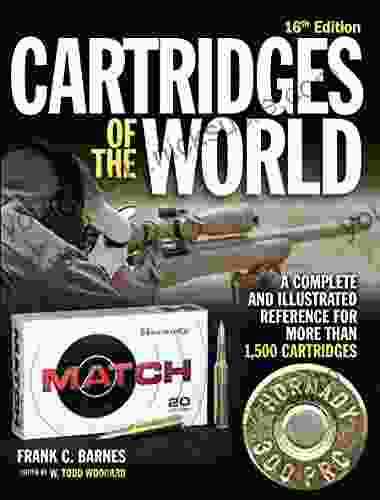
 Devon Mitchell
Devon MitchellDelve into the Comprehensive World of Cartridges: A...
In the realm of firearms, cartridges stand...
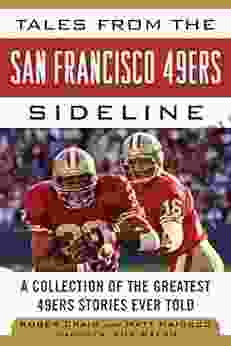
 Joseph Conrad
Joseph ConradTales From The San Francisco 49ers Sideline: A Look...
The San Francisco 49ers are one of the most...

 Ervin Bell
Ervin BellArcGIS Desktop 10: A Comprehensive GIS Tutorial for...
Geographic information...

 Reed Mitchell
Reed MitchellPhysiology Pretest Self Assessment And Review 14th...
Accurately gauge your physiology knowledge and...
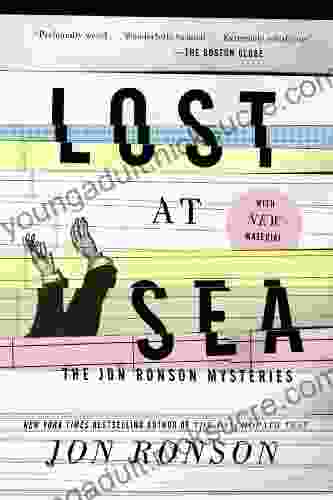
 Devin Ross
Devin RossLost At Sea: The Unbelievable True Story of the Jon...
In 2009, journalist Jon Ronson set out to...
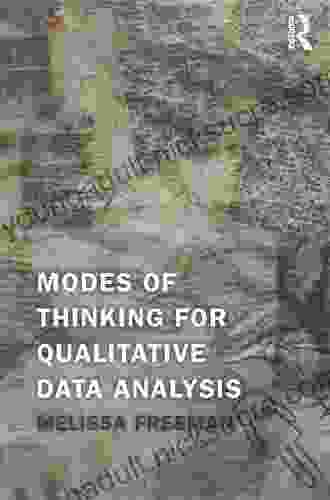
 Shane Blair
Shane BlairModes of Thinking for Qualitative Data Analysis
Qualitative data analysis is a complex...
4.7 out of 5
| Language | : | English |
| File size | : | 790 KB |
| Text-to-Speech | : | Enabled |
| Screen Reader | : | Supported |
| Enhanced typesetting | : | Enabled |
| Word Wise | : | Enabled |
| Print length | : | 379 pages |


